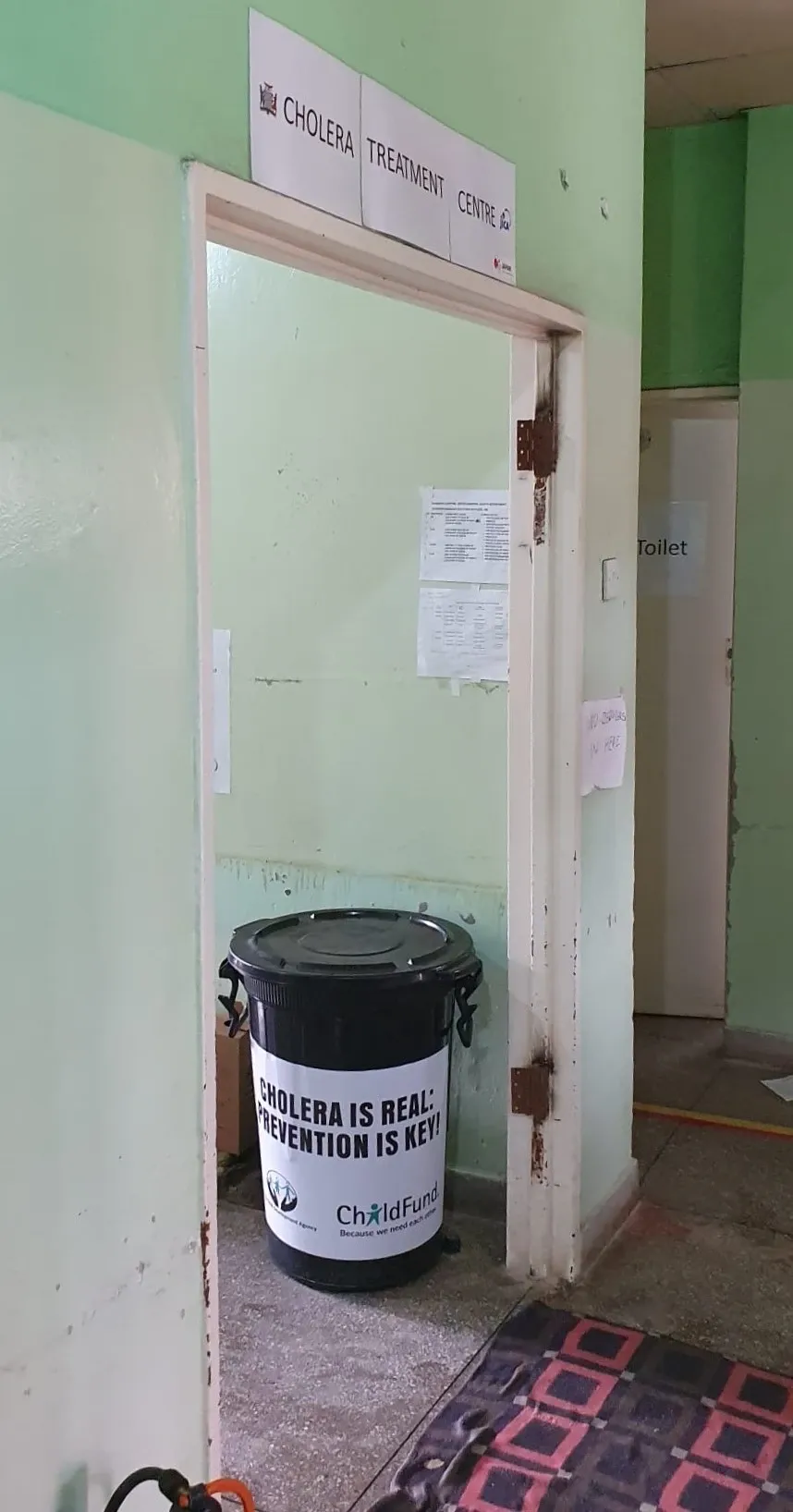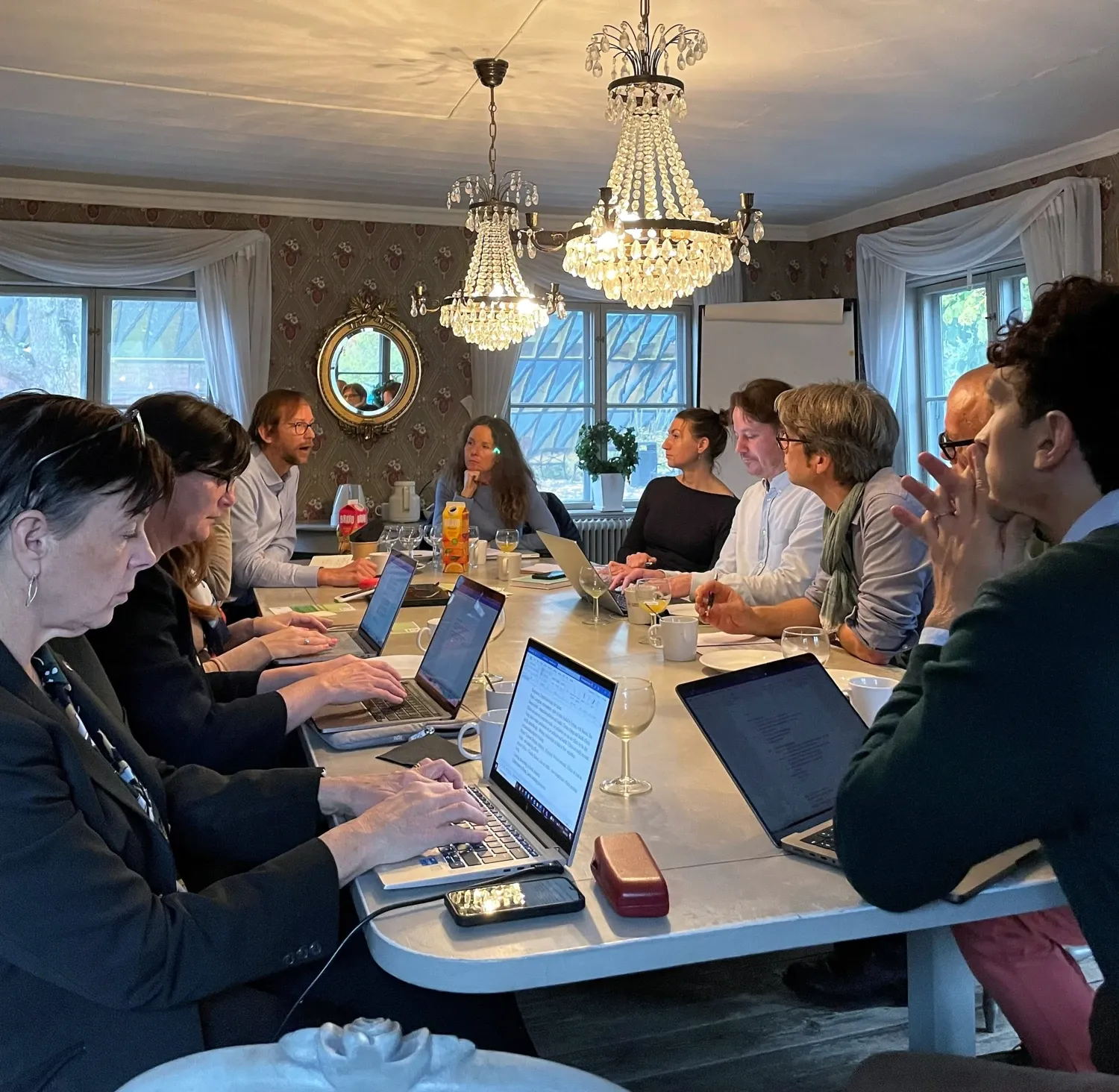Collaboration partners at the Centre for Health Crises
The Centre for Health Crises’ partners enable us to use, develop and share our expertise. They also keep us up to date, engage in the public dialogue on issues that concern us, and help us make sure our knowledge and skills reach to where they are most needed. They supplement our networks and cut across different areas of our work, not least enabling our partners to second staff to ongoing health crises around the world.

International cooperation and secondment of expertise
Our international partners include, among others, the World Health Organisation (WHO), Médecins Sans Frontières (MSF), other universities and organisations with a specific health crisis focus. These collaborations are crucial for us to remain relevant in our analysis, our research, our teaching and, not least, for our expertise to reach where it is needed. Secondments provide experience, strengthen our skills base and the relevance of our advocacy.
It also enables us to second experts to ongoing health crises around the world, and to support preparedness and evaluation. The secondments are in line with the objective of supporting ongoing health crises and initiatives to increase preparedness for future crises, and are part of our focus area expertise mediation.
To carry out the secondments, we work with organisations that are directly involved in health crises in various ways. We are also looking at opportunities for secondments and other types of staff exchanges within Sweden.
At present we collaborate with the following partners in terms of international secondments

Collaborations within Karolinska Institutet
As our work spans many traditional disciplines and requires multi-faceted expertise, it is important that we reach out to departments, centres and units at the university. Since the Centre was established, we have worked closely with the research group Global Disaster Medicine - Health Needs and Response a. We also have a dialogue with several other entities within the university, such as the Centre for Radiation Medicine in Disasters (KcRN), the Centre of Excellence for Sustainable Health and with initiatives related to Defence Medicine.
Based on our mission to build the next generation of health crisis experts, we value student engagement, among other things through IFMSA Sweden (International Federation of Medical Students' Associations), and welcome student participation in our activities.
Stockholm trio
We are part of an interdisciplinary collaboration on climate and health within the Stockholm Trio University Alliance. Together with the KTH Climate Action Centre and the Bolin Centre for Climate Research at Stockholm University, we are working to find common spaces for research and educational activities focusing on the intersection of climate and health.
Representatives from the Stockholm trio are also part of our steering group and KTH and Stockholm University are represented in the Health Crises Network.

National collaborations
Within Sweden, we are in contact with several organisations and authorities, including the National Board of Health and Welfare, the Civil Contingencies Agency (MSB), the Swedish Agency for Health Technology Assessment and Assessment of Social Services (SBU) and the Public Health Agency of Sweden. In addition, there is co-operation with other relevant actors in each of our areas of expertise. Our aim in collaborations with authorities and other national actors is that the expertise we and our network partners possess should reach out to support the surrounding society in the preparedness, management and evaluation of health crises.
Campus Total Defence
The Centre for Health Crises collaborates with the newly established initiative Campus Total Defence.
Campus Total Defence is a strategic initiative where Swedish universities collaborate to strengthen the country’s total defence through education and research. By bringing together academia, government agencies, industry and civil society within a national network, a solid foundation is created for knowledge exchange and skills development in the field of total defence.
In the Budget Bill for 2024, the government has instructed Campus Total Defence to: Coordinate and strengthen education and research efforts at the country's higher education institutions in order to contribute to the ongoing work of authorities and industry to build up total defence.
The aim of Campus Total Defence is to act as a national collaboration node where Swedish higher education institutions can work together to ensure that total defence has access to relevant expertise and research. This is done by establishing a common platform where universities can develop collaborations with authorities, industry and civil society in areas related to total defence. The focus is on stimulating and further developing existing initiatives at higher education institutions and avoiding overlapping work.
Campus Total Defence highlights the importance of universities in strengthening society's resilience and endurance in crises and conflicts, both nationally and internationally. Emphasis is placed on integrating a sustainability perspective into all work within Campus Total Defence.
